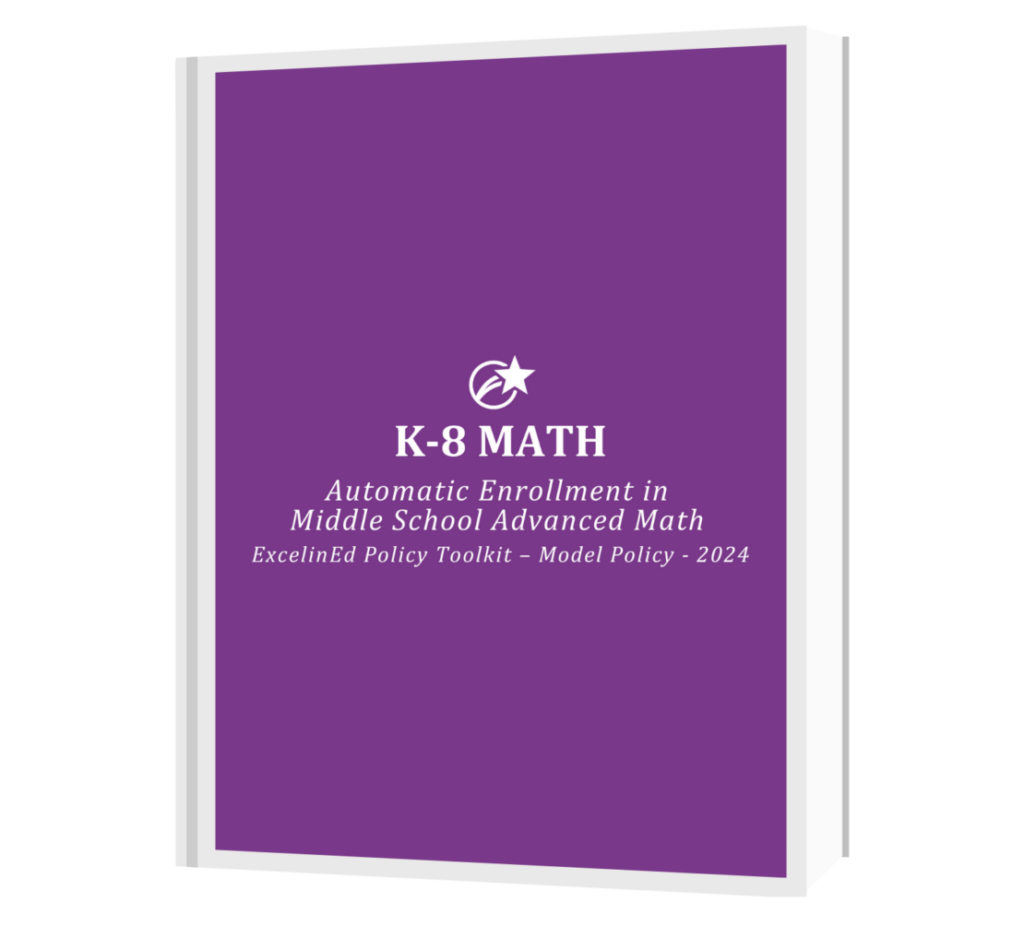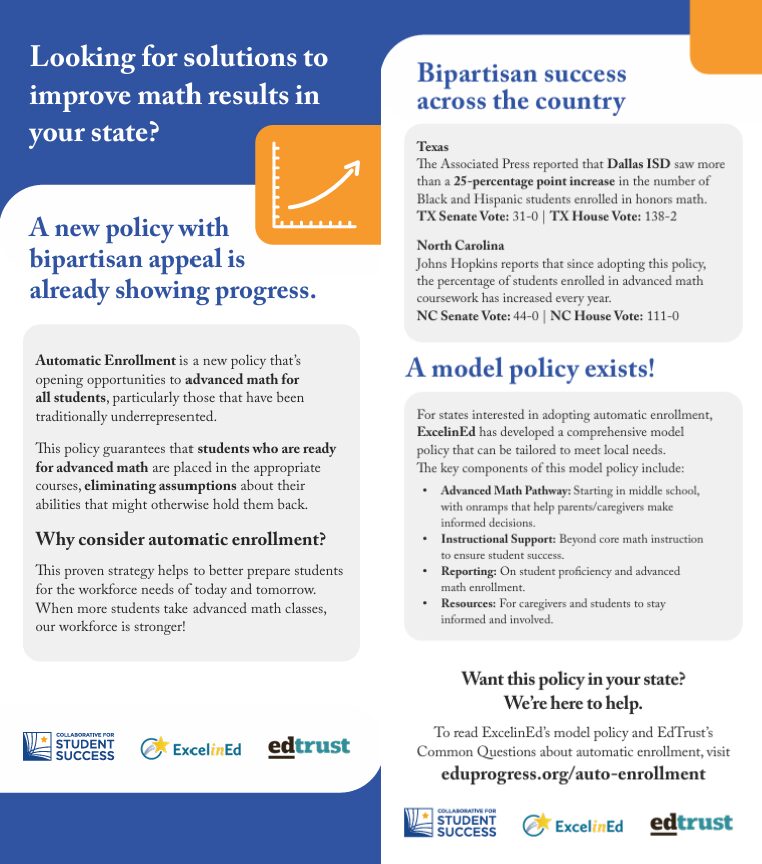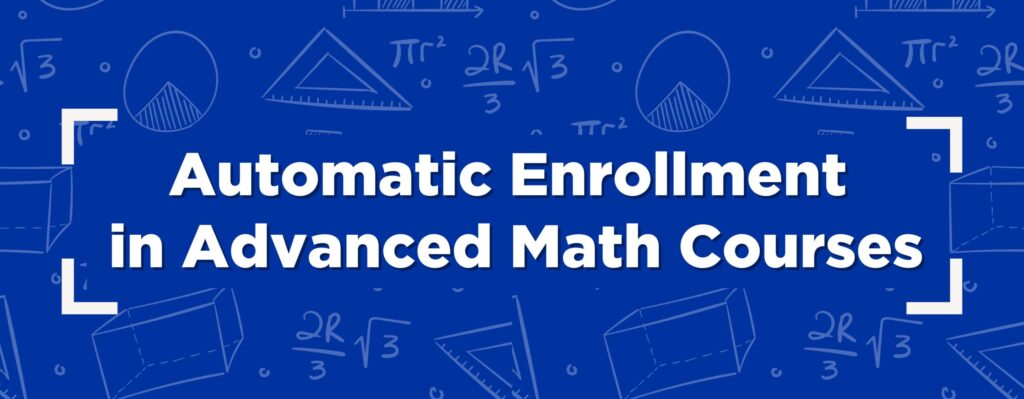
Students who are ready for advanced math courses should not be overlooked in school because of assumptions that they’re not a ‘math person.’
What are Automatic Enrollment policies?
In states like Texas, Washington, and North Carolina, schools automatically enroll students who perform at the highest levels on state math tests into an advanced math course for their next school year. While only implemented in recent years, schools are already seeing large increases in the number of students of color and students from low-income backgrounds enrolled in – and sticking with – advanced math courses.
A growing group of bipartisan states are adopting auto-enrollment policies to ensure all students who are ready for expanded opportunities in math are able to claim a seat in an advanced math course.
Expanding Auto-Enrollment
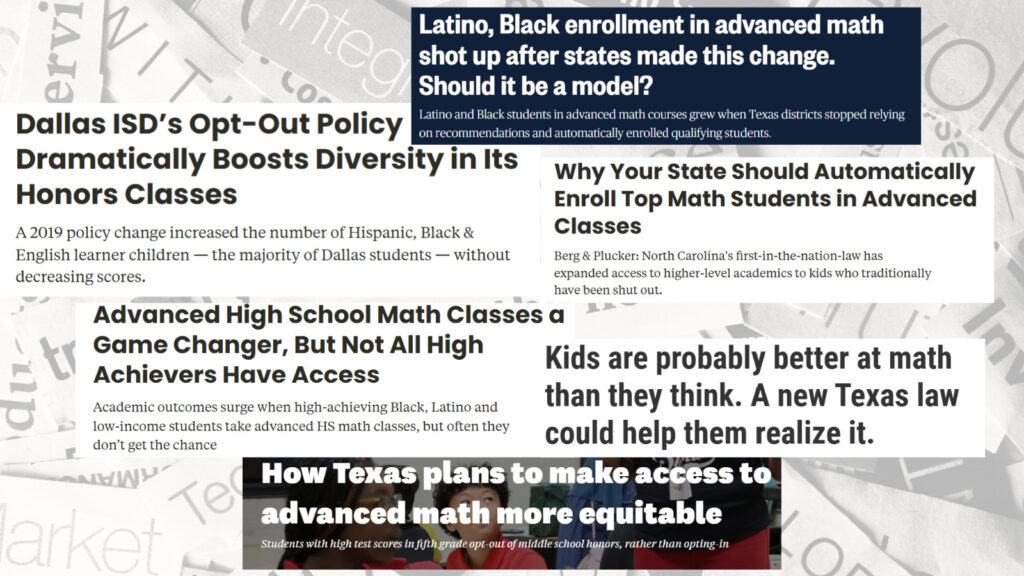
School districts across North Carolina, Texas, and Washington are already seeing impressive gains in the percentages of students of color and students from low-income backgrounds enrolling in - and sticking with - advanced math courses.
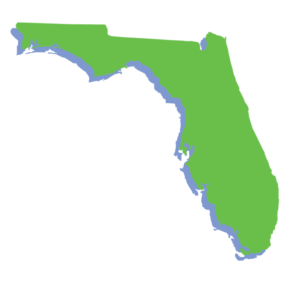
During the 2021-22 school year in Florida, only 7.8% of public high school students taking Advanced Placement Calculus AB were Black, despite Black students representing 20.9% of the cohort.
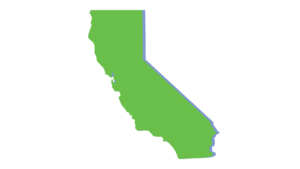 A 2023 report by Policy Analysis for California Education (PACE) found that Black students in California were the least likely to enroll in advanced math courses, while English Learners were the most likely to be enrolled in foundational math courses preceding Algebra II while in the 12th grade. The findings pointed to “substantial disparities in opportunity” between student groups.
A 2023 report by Policy Analysis for California Education (PACE) found that Black students in California were the least likely to enroll in advanced math courses, while English Learners were the most likely to be enrolled in foundational math courses preceding Algebra II while in the 12th grade. The findings pointed to “substantial disparities in opportunity” between student groups.
 In 2020, EdTrust – New York found that students who were White and not low-income were approximately twice as likely to be enrolled in advanced courses than their low-income, Black, and Latino peers.
In 2020, EdTrust – New York found that students who were White and not low-income were approximately twice as likely to be enrolled in advanced courses than their low-income, Black, and Latino peers.
 According to EdTrust, the enrollment of Black students in AP Math courses in Michigan would need to double in order to achieve fair representation.
According to EdTrust, the enrollment of Black students in AP Math courses in Michigan would need to double in order to achieve fair representation.
Key Supporters

Check out EdTrust’s tool for exploring advanced course data in your state or learn even more about auto enrollment policies here.

Learn how efforts in North Carolina to create stronger math opportunities for all students are paying off:

To hear from leaders in North Carolina and Texas on auto-enrollment policies in their communities, listen in to the Route K-12 podcast for more:
Hear from Experts
Explore two podcast episodes with local leaders in North Carolina and Texas, as well as national experts on math policy, to learn more about the impact auto enrollment is having on student outcomes – and why it should be adopted in states across the nation.
Model Policy
Our friends at ExcelinEd – a nonprofit that supports state leaders in transforming education – have developed a model automatic enrollment policy for advanced math coursework that can easily be adapted to meet the needs of any state.
If you’re a policymaker, school or community leader, or K-12 parent or educator, use this model policy to advocate for stronger math policies in your state.
Share the Power of Automatic Enrollment
Want to help spread the word about a game-changing policy improving math outcomes for students? Download our Automatic Enrollment palm card—a quick and easy resource to share with others!
Why Share Automatic Enrollment?
- Proven Success: States like Texas and North Carolina are seeing more equitable access to advanced math for students traditionally underrepresented.
- Empower Your Network: Educators, policymakers, and community leaders can all play a role in bringing this proven strategy to more states.
What’s Inside the Palm Card?
- Key facts about Automatic Enrollment
- Inspiring success stories
- Resources for starting conversations in your community

